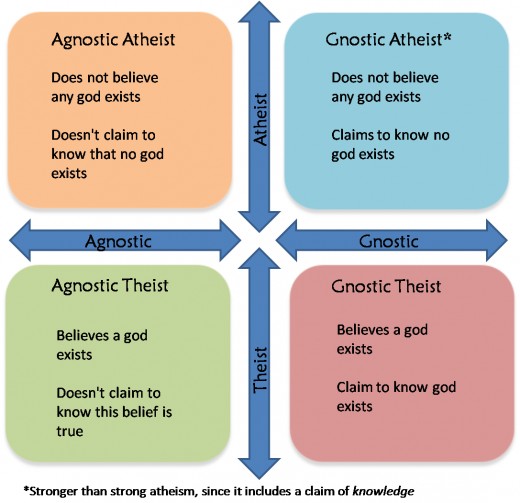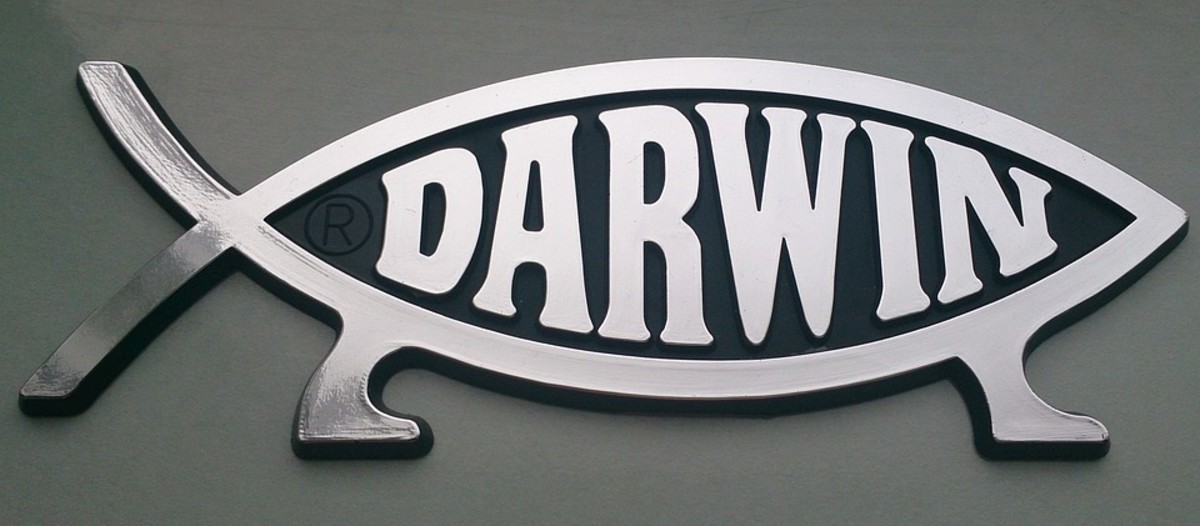Are you Atheist or Agnostic?
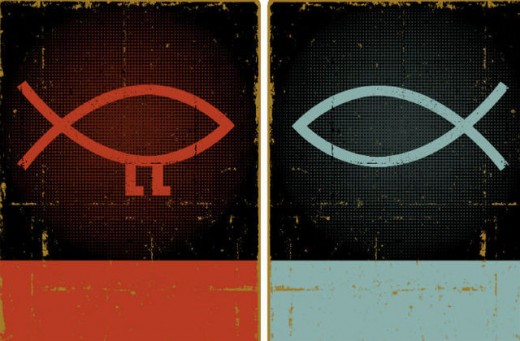
Quick Intro
Some folks, when asked if they believe in God, are unsure of how to answer the question in a manner that accurately reflects their position on the matter. It comes down to, I think, a misunderstanding of terms and definitions. This hub will focus on defining terms in a way that is intended to help people know what their position is.
I think this hub will help a lot of people because, though the question and answer are quite simple, I've encountered many people who answer with social buzz words thinking they are satisfying the question, but they only complicate the matter because they don't fully answer the question and more questions about the same thing will have to be asked to get a solid understanding of their position.
At times, this question is posed at the beginning of debates where a clear cut defining of terms is called for, and that is why I'm writing this hub.
Theism and Atheism
Theism is the belief that a god or gods exist. A person who calls themselves a theist is someone who believes in a god or gods. Simple, right?
Atheism is the lack of belief that a god or gods exist. So, as logic should follow, an atheist is someone who doesn't believe in a god or gods. Still trackin? Good.
One thing to point out is that reasonable people from either group cannot assert that their beliefs are accurate, because their beliefs are based on something that cannot be proven or disproven. Additionally, atheism is not the assertion that no god or gods exist, it's simply the lack of belief in any of the divine claims made by theists.That last bit can be a little difficult for some people to wrap their heads around, so I'm going to use the popular court case analogy to help clarify:
If a person is on trial for murder, or anything that warrants a trial by jury, the jury only addresses the defendant's guilt. If the jury finds the defendant not guilty, that only means the prosecution failed to convince the jury of the defendant's guilt. No claim of innocence is made by the jury.
I'll use one more analogy in case the last one didn't quite hit the mark. This is the gumballs in a jar analogy:
Suppose there is a jar with an unknown number of gumballs inside and I tell you there is an odd number of gumballs, what do you do? Do you accept my assertion or reject it? If you're a reasonable person you'll reject my claim due to a lack of evidence. That does not mean you automatically believe there is an even number of gumballs in the jar, you're just reserving judgement until you're convinced one way or the other.
Hopefully that helps anyone who may be confused about what atheism is, and I do apologize for going off on a tangent like that. The point of this section was to simply demonstrate that the terms "theism" and "atheism" address 'belief' only and are different than "gnosticism" and "agnosticism" which address 'knowledge', which I will get to in the next section.
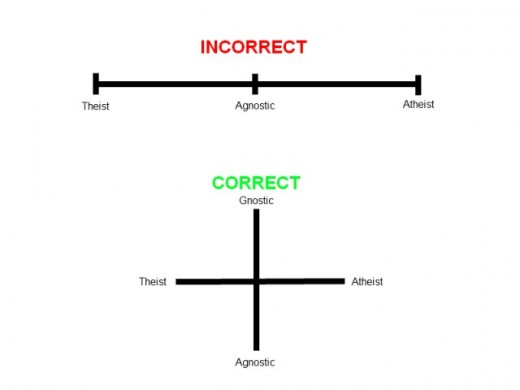
Gnosticism and Agnosticism
A gnostic is someone who has knowledge or claims to have knowledge of something, not just about god.
An agnostic is someone who doesn't have complete knowledge about something. For example, I could say that I'm agnostic about where my boss lives.
There are many definitions of these words, but I'm using the ones associated with divine claims and beliefs. When asked if you believe in God and you respond with, "I'm agnostic," then you're not satisfying the question. You simply stated that you don't know, but you failed to mention what it is you don't know.
Being asked if you believe in God or not is not a trick question, you either do or you don't. If, however, you were asked if you think a god exists you could probably get away with saying you're agnostic, but that's a different question entirely, but before I go on another tangent let's move on.
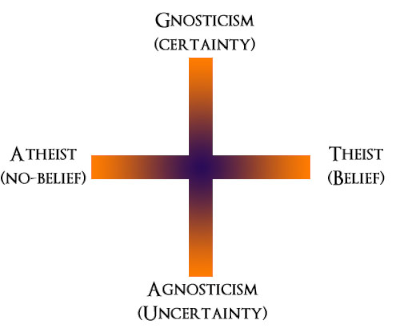
Let's Put it all Together!
Though I doubt I need to summarize anything, I'm going to do it anyway.
"Theism" and "atheism" address BELIEF.
"Gnosticism" and "agnosticism" address KNOWLEDGE.
When responding with "I'm agnostic" when being asked if you believe in god, you need to be more specific. Are you an agnostic atheist or agnostic theist? The question was if you BELIEVE in god, and gnosticism and agnosticism don't say anything about what you believe.
Remember the analogies? Suspending belief does not mean you accept the contrary, it just means you haven't been convinced one way or the other.
Hopefully this helps clarify some things and if you have any questions or comments, please post them below!
